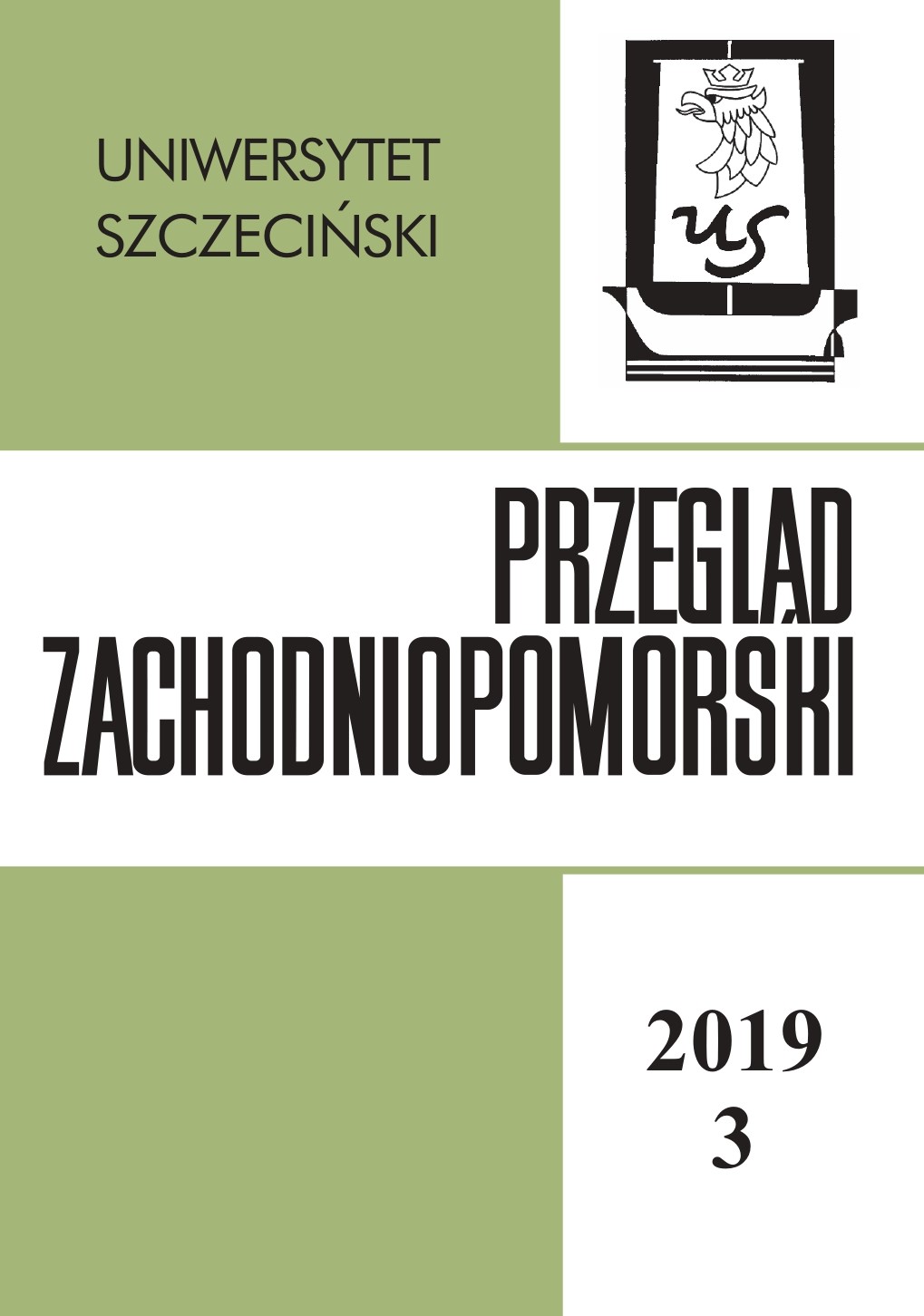Między badawczą rzetelnością a mitem. Tomasz Kantzow (1505–1542) – wczesny prekursor nowoczesnej historiografii Pomorza Zachodniego?
Between Academic Integrity and Myth. Tomasz Kantzow (1505-1542) as an Early Precursor of Modern Historiography of West Pomerania
Author(s): Paweł ŚliżewskiSubject(s): History, Local History / Microhistory, Modern Age, 16th Century
Published by: Wydawnictwo Naukowe Uniwersytetu Szczecińskiego
Keywords: humanistic historiography; Renaissance historiography; Renaissance; West Pomerania; history of historiography; historical ideology
Summary/Abstract: The article contains an analysis of a new assumption made by the 16th-century Pomeranian historian, Tomasz Kantzow, according to which the Region had been settled originally by the Germans, and not by the Slavonic tribes as it had been propagated by an older mediaeval tradition. That point of view was justified by the influence of the factors connected with the changes taking place in the historiography of the time and the manner of thinking about the past, which in turn was the result of the impact of the Renaissance. An important tendency, visible in the last version of Kantzow’s Pomeranian Chronicle, is his desire to construct the most reliable picture of the past based on diligent studies of the available sources concerning the most remote past, which generally was a feature of the Renaissance, especially the ones coming from the Antiquity, which had been unknown for the previous generations and which became available thanks to the invention of the print. It also meant rejection of many previous legends and myths not based on facts confirmedby the available sources. That manner of constructing knowledge about the past was – which is another important thesis of the article – a milestone towards constituting modern historiography, making the discipline more ‘scientific’. Another innovation – related with the time Tomasz Kantzow lived in – was the awakening of national awareness in its modern meaning and the resulting perception of the past. That factor also had an impact on the Pomeranian chronicler, making him decide to present the remote past of the country as unambiguously Germanic. At the same time, his chronicle may be perceived as an expression of Pomeranian patriotism and ideas related with the independence of the Duchy of the Griffins, irrespective of the national identity of their subjects. From that perspective, Kantzow seems as another representative of the traditional – dated back to the Middle Ages – state ideology of West Pomerania. What distinguishes him is a completely new form to present history. The conclusion may be reduced to the statement that Kantzow’s construction creates another myth derived from the same family of Pomeranianstate myths, albeit his method of constructing it is different. The basis for that methodis studying sources and presenting reliable conclusions, resulting from the sources. To some extent, it resembles the practice of modern academic historiography, also ideologically motivated in many cases and supporting national myths.
Journal: Przegląd Zachodniopomorski
- Issue Year: 34/2019
- Issue No: 03
- Page Range: 5-30
- Page Count: 26
- Language: Polish

